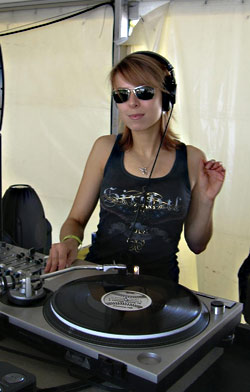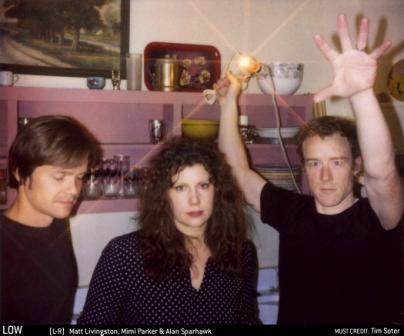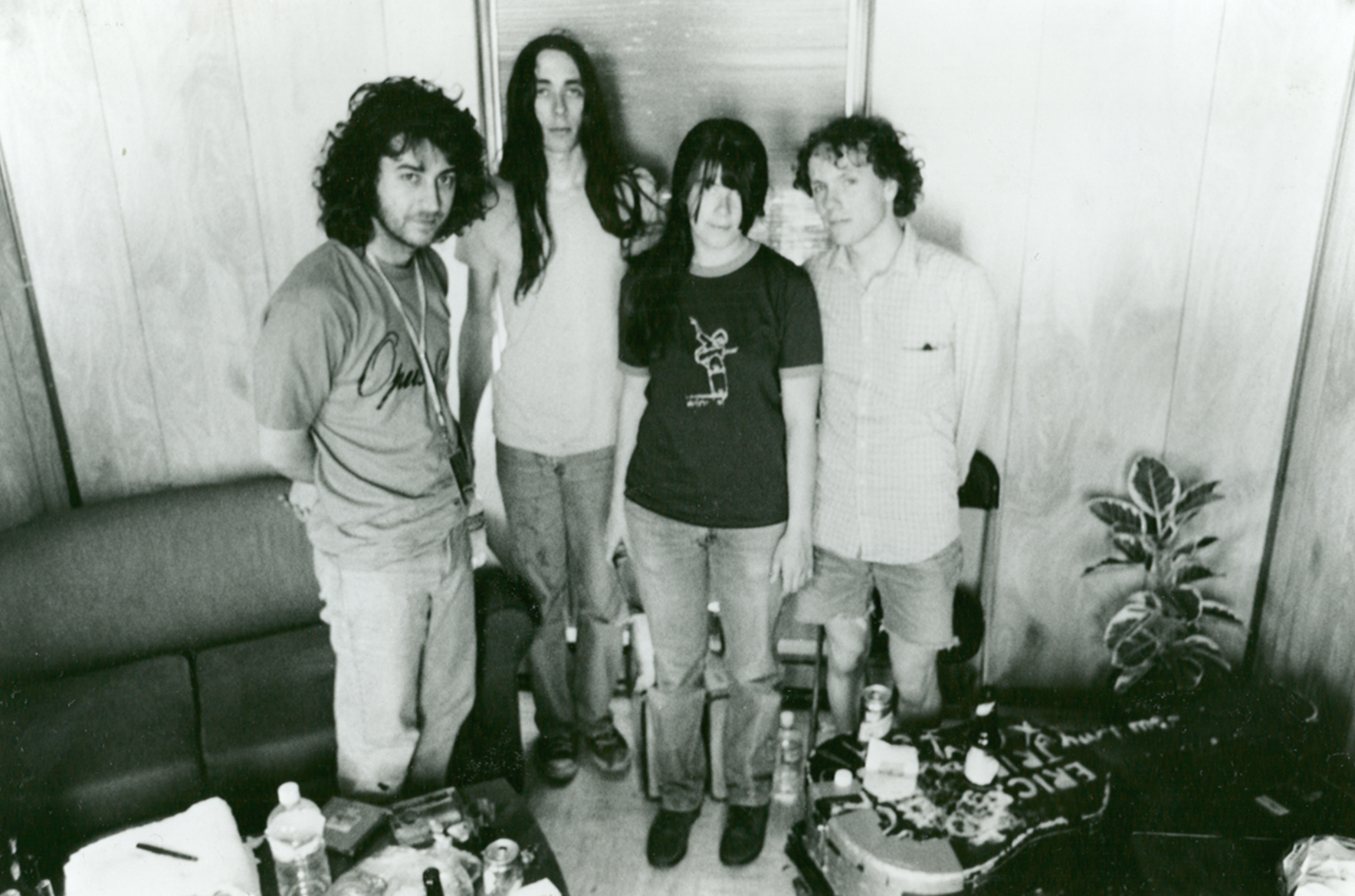The little media there is concerned with drum and bass (a couple of import-only books, U.K.-based Knowledge mag) would have you believe that women are spectators—if consumers at all—of electronic music’s most male-dominated genre. It’s a fractured one with as many styles as types of fans, and an undeniable sausage fest. Women are welcome, but might sooner balk at the rapid-fire rhythms of harder drum and bass, or the men in fur-lined jackets shouting “Boh selecta!” at the DJ. So when women like Reid Speed (real name: Reid Margolis) penetrate this esoteric, insular scene, it’s an anomaly of volcanic proportions. And not because they’re hot.
Like pioneering DJs Storm and Rap, Los Angeles–based DJ/producer Speed thrives among the chaos of drum and bass, and is one of a handful of women in the world to make a career from her love of it (as well as house and breakbeat, which she incorporates into sets and mixes). While at college in New York City during the late ’90s, Speed bought her first turntables, got involved with still-running weeklies like Direct Drive, and worked at Breakbeat Science, the United States’ first strictly d’n’b record store—her last day job. “I never thought that this would become a career for me,” says Speed. “By the time I was done with college, I was already sort of making enough money to live. Soon after, I made a choice that money was not going to be the focus of what I’d make my life about. Music is going to drive me.”
Choice made, a single-minded determination has saved her from the cube-dwelling graphic designer life she was (never really) headed for. “You have to be a self-motivator,” she says. “I have the freedom to go to the beach and ride my bike for two hours, but then I have to put the eight hours in the studio making music.”
It’s definitely paid off. Speed has released 13 mix tapes and two mix CDs (Resonance and Life After Dark), remixed Le Tigre, and collaborated with producers Sense, Jon (S), and MC Dino on a handful of tracks to appear on her forthcoming artist album. She’s toured the country multiple times (“indie band”–style at first), navigating ad campaigns and television appearances in a way that’s lucrative yet self-preserving. Playboy once extended a photo shoot invitation to Speed, which she declined. “If they had been OK with me wearing clothes, I probably would’ve done it,” she says. “Can you imagine trying to DJ a party after 3 million people have naked pictures of you? It was hard to say no to all that money, but this is something I’ve worked for for 10 years, and my respect would get tossed out of the window.”
The former tomboy no longer wears baggy pants and pulls a hat over her eyes when she’s onstage, but fear of preferential or, conversely, prejudiced treatment informed her appearance at first, and even her gender-neutral DJ name.
Likewise, Joanna B (DJ Syze) is currently Seattle’s most prominent female figure in the d’n’b scene, with her hands in as many facets as Speed’s are in L.A., and she echoes Speed’s sentiments. “I’ve always had a tomboy edge,” says Syze, who’s been playing and touring since 1998. “You’d be surprised the stuff people say to me. I’ve been told, ‘When you play for me, make sure you dress sexy.’ They’ll say it as a joke, but you know they mean it. I’d show up with a hoodie on and no makeup to piss them off on purpose.”
“Guys can be ugly and fat and disheveled, and girls will throw themselves at them,” says Speed. “But I know plenty of girls who are overweight who have trouble getting booked, or girls who don’t try that hard [to look pretty].”
Both women chalk it up as par for the course, especially the more aggressive sector of drum and bass. “The women who are involved tend to be very strong-minded individuals,” says Speed.
Local DJ and Kaos Theory promoter Jeff Dowling (the Dowlz) booked Speed for his six-year-running weekly, now held at the War Room. “Drum and bass has become so diverse that it’s not just the gritty, dark, smashing sound anymore. I would hope that would produce a more diverse bill of DJs,” says Dowling, who cites Speed’s energy, stage presence, and often-unreleased tunes as draws. Her appearance isn’t brought up. As part of this century’s first wave of successful female DJs, Speed’s ready to set industry standards and smash stereotypes. “At some point,” she says, “it’s not going to be a novelty anymore.”








